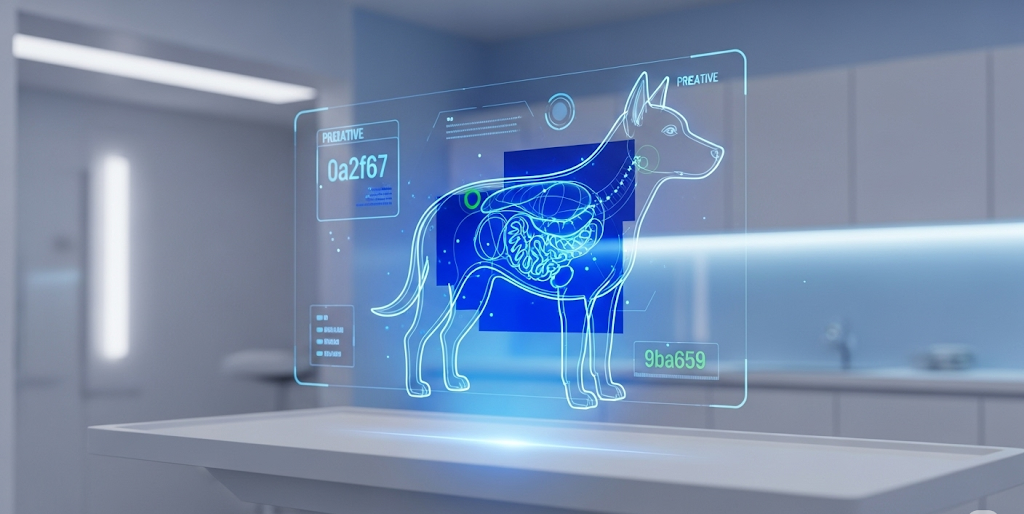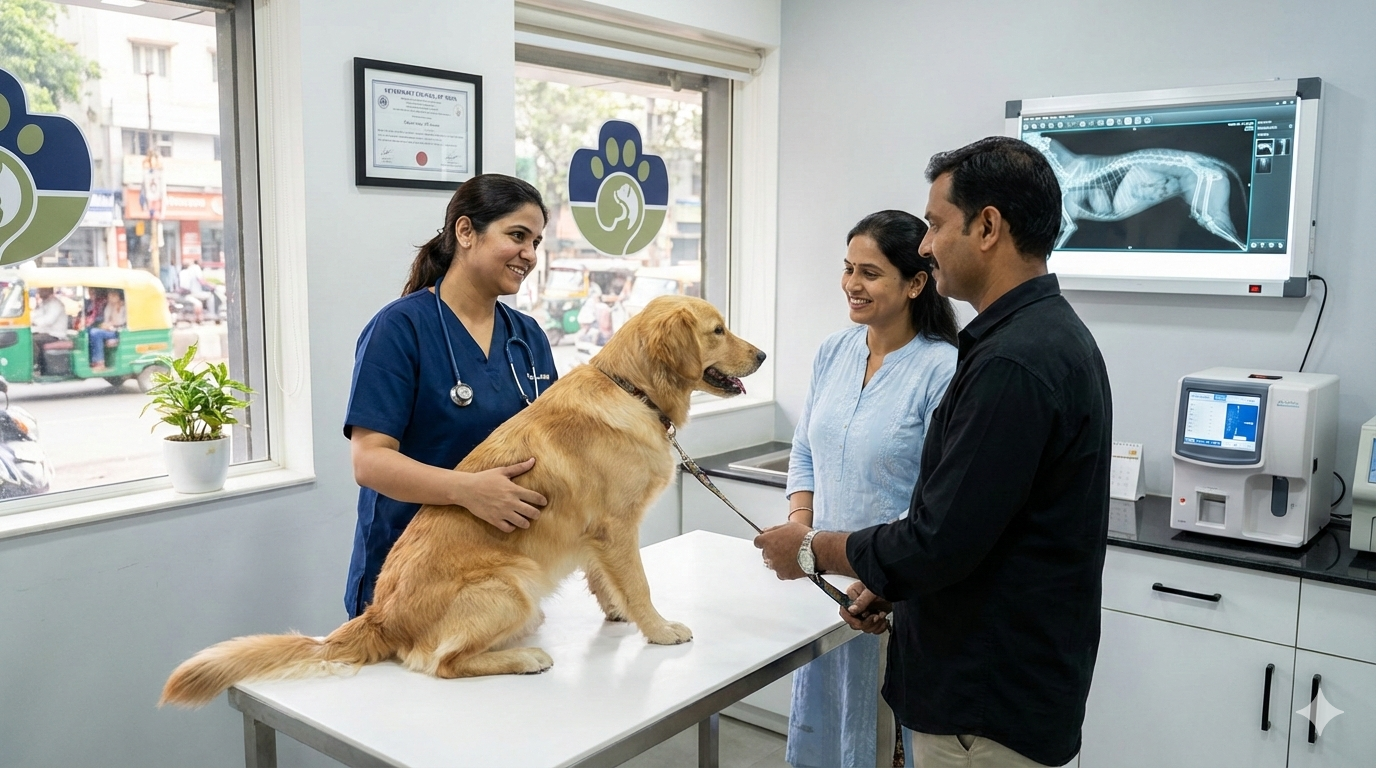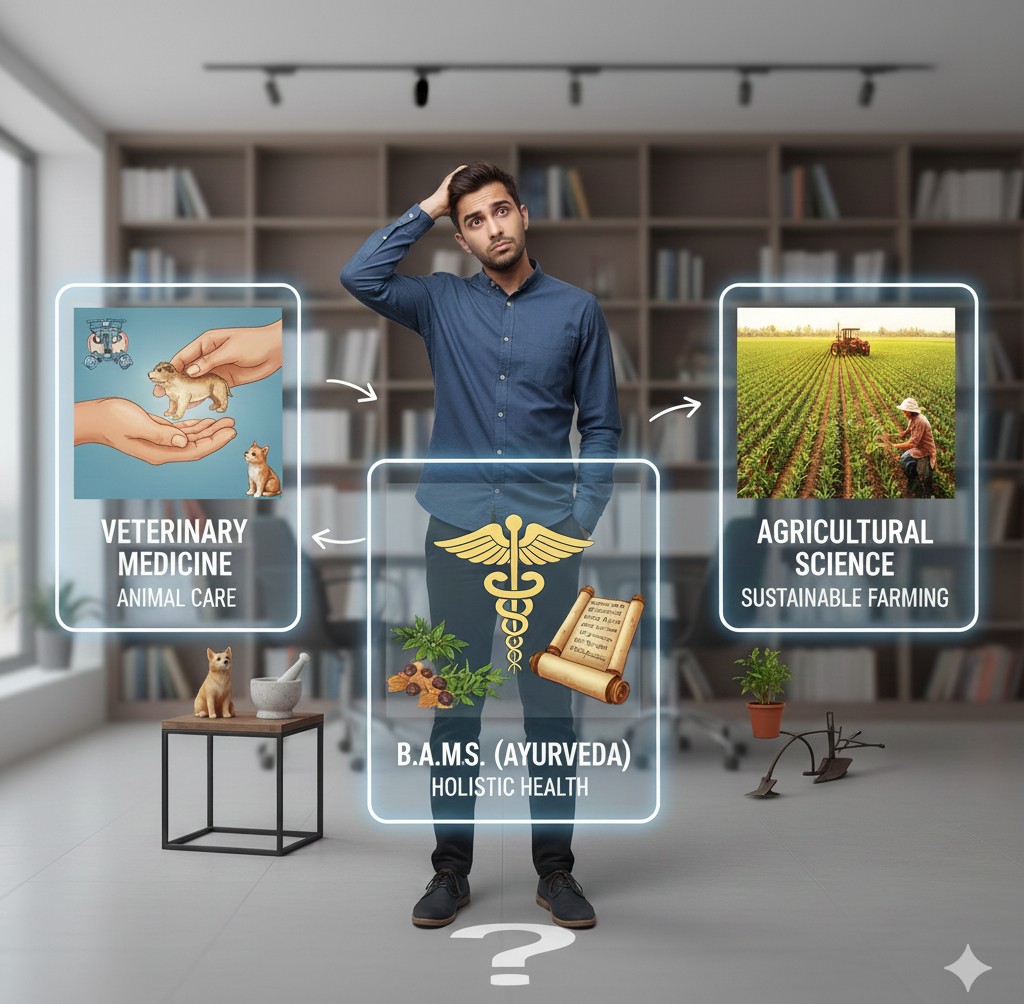A Bachelor of Veterinary Science and Animal Husbandry (BVSc & AH) degree provides a solid foundation for more than just clinical practice. The training in animal biology, disease pathology, and pharmacology is applicable to a variety of fields that address important challenges in India.
This document outlines three career paths for a veterinary graduate that extend beyond a traditional veterinary clinic.
Public Health Officer
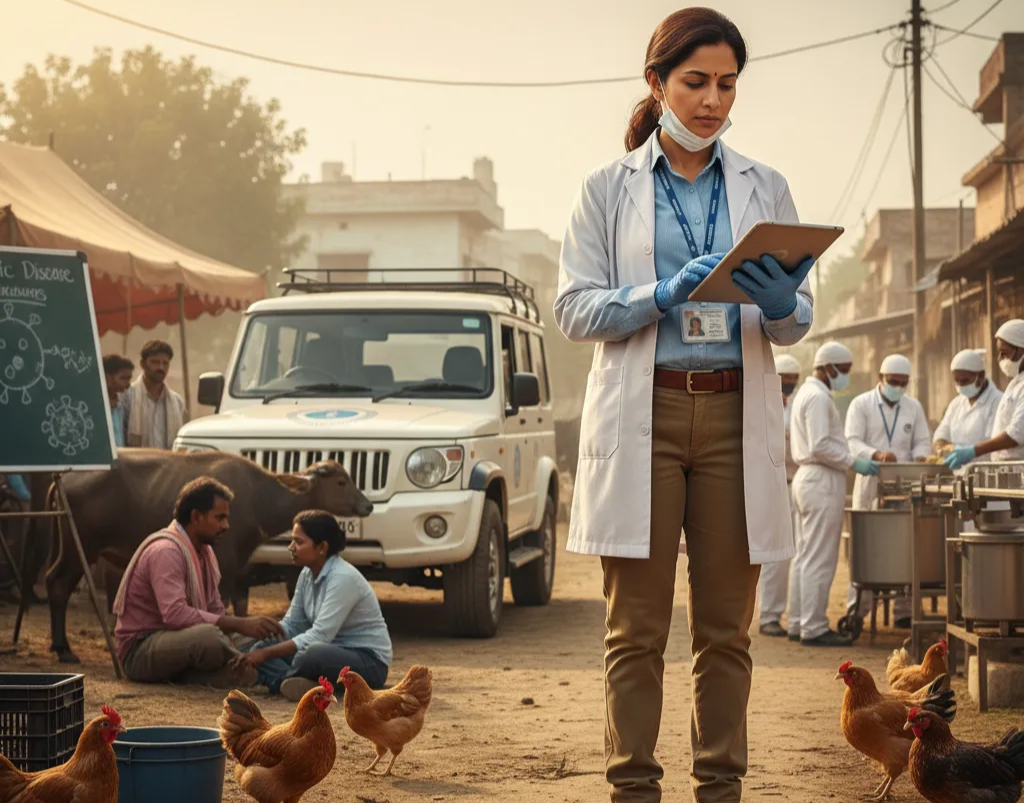
In this role, veterinarians work to protect human and animal populations from diseases. A public health veterinarian typically works for a government body such as a state Animal Husbandry department or a research institution like the Indian Veterinary Research Institute (IVRI).
Key responsibilities
- Investigating and managing outbreaks of zoonotic diseases that can transfer from animals to humans.
- Maintaining food safety and hygiene standards in industries like meat and dairy.
- Developing systems to monitor for potential disease threats.
- Ensuring livestock health to support national food security and prevent economic losses.
Key Benefits
- High Impact: This role directly contributes to the health and safety of both humans and animals on a large scale.
- Job Stability: Government positions in public health are stable and often include benefits like allowances and pensions.
- Competitive Salary: The average salary for a public health veterinarian is approximately ₹12.26 lakh per year, with senior roles earning more. (Source: SalaryExpert)
Forensic Veterinary Scientist
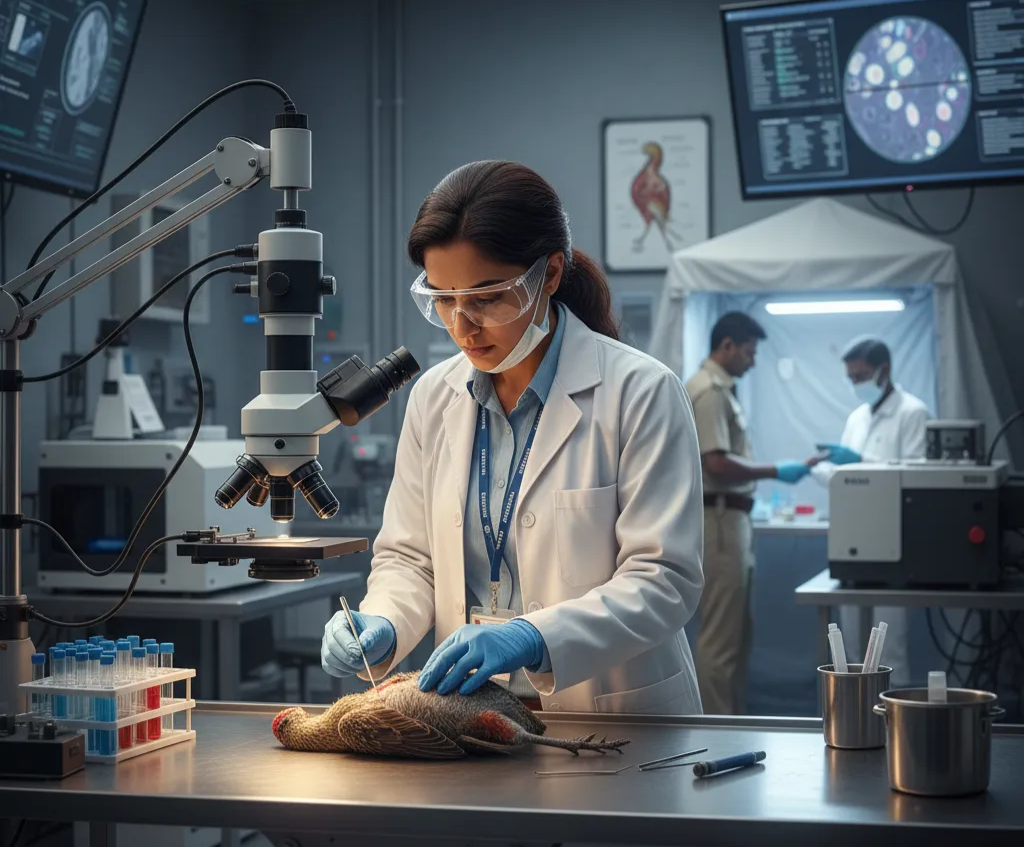
A veterinary forensic scientist uses medical and pathological knowledge to support legal investigations involving animals.
This career is a specialized field that combines science and law.
Key Responsibilities
- Performing necropsies (animal autopsies) to determine the cause of death in cases of animal cruelty or illegal wildlife trafficking.
- Analyzing physical evidence, such as hair, fibers, and DNA, from crime scenes.
- Providing expert testimony in court to assist in legal proceedings.
- Collaborating with law enforcement and forest departments to protect animal species.
Key Benefits
- Advocacy: This work provides a way to ensure justice for animals that have been victims of crime.
- Specialization: It is a growing and highly specialized field, creating demand for qualified experts.
- Career Opportunities: As public and legal awareness of animal cruelty increases, the demand for forensic veterinarians is expected to grow.
Pharmaceutical Researcher
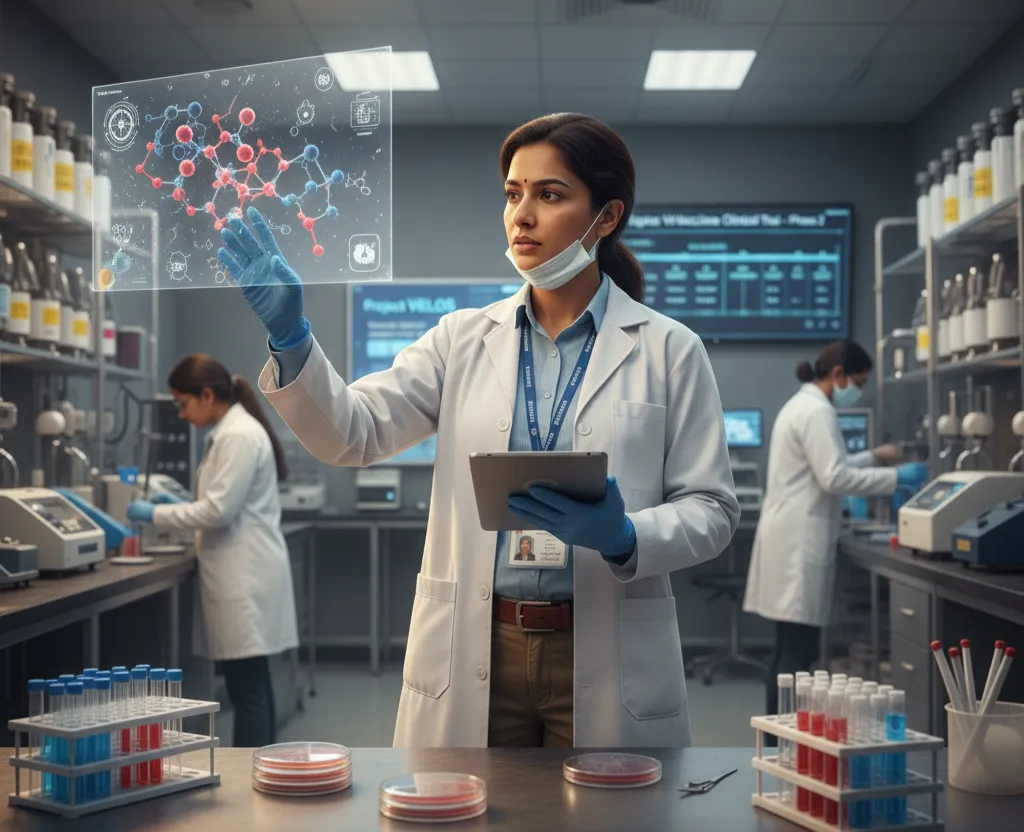
The development of new drugs and vaccines for animals requires veterinary expertise. As a pharmaceutical researcher or technical manager, a veterinarian's understanding of animal physiology and disease is essential.
Key Responsibilities
- Leading research to develop new medications or vaccines for animal diseases.
- Designing and overseeing clinical trials to confirm a drug's safety and effectiveness.
- Serving as a technical expert to educate other professionals on new products and their applications.
- Ensuring products meet regulatory guidelines before they are released to the market.
Key Benefits
- Financial Rewards: The animal pharmaceutical industry offers a good salary, with experienced professionals earning between ₹50,000 to ₹1,20,000 per month or more.(Source: Swaasa)
- High Demand: The demand for veterinarians in this sector is growing due to the rise in pet ownership and the economic importance of livestock health.
- Intellectual Engagement: This role places you at the forefront of scientific research and development.
Conclusion
These three career paths demonstrate the diverse opportunities available with a BVSc & AH degree in India.
The skills acquired in veterinary colleges are transferable and can be applied to fields like public health, forensics, and pharmaceuticals.


